
Bart Decadt
Consultant Laparoscopic Bariatric
& Upper GI Surgeon





Contact Private Secretary (Barbara Dawson)
Telephone 0161 440 9997 Fax 0161 440 8818 Mobile 07802 445558




Pre Surgery Consultation
Much of our motivation to change comes from the benefits it can have with regards to our health. Weight loss can improve life expectancy, weight loss can dramatically reduce the risk of developing many medical conditions as well as providing a resolution for some of your existing medication conditions.
Weight loss does not just improve your physical health, it also improves your psychological health. Weight loss can help with depression, increasing self-belief, improving confidence and lead to an overall improvement in wellbeing and quality of life.

CALCULATE YOUR BMI
THE PATIENT JOURNEY

All Enquiries
0161 440 9997







































Patient Groups
Type 2 Diabetes
When Digested food enters the blood stream it triggers the pancreas to release insulin to convert excess sugar to energy. Type 2 Diabetes occurs when the body is unable to produce enough insulin or is unable to fully use this insulin to remove this sugar from the blood.
For some Type 2 diabetics healthy eating and weight reduction can adequately maintain a normal blood sugar level. If this alone does not improve the condition then medication such as Metformin, Gliclizide, Pioglitazone or Exanatide may be prescribed. Some individuals may be required to take Insulin injections if other treatment does not sufficiently reduce blood sugar levels.
Weight gain and central obesity (weight around the stomach) increases the risk of developing type 2 diabetes as the body has to distribute more insulin to compensate for your excess weight. If you eat large quantities of complex carbohydrates (bread, cereal, pasta, rice and potato) or your food choices are high in sugar ( biscuits, chocolates or sweets) this places further pressure on the body to produce insulin. Weight loss along with avoidance of too much sugar can help prevent type 2 Diabetes from developing or potentially reverse the existing condition by reducing the demands on the body to produce and use insulin.
Heart Disease and Stroke
One of the major causes of heart disease is the build-up of fatty deposits that cause narrowing of the arteries. This can reduce blood flow and oxygen to the heart or cause a complete block or blood clot which can cause angina, heart attack and stroke. Excess weight can cause high blood pressure, high cholesterol and high triglyceride levels, all of which increase the risk of heart disease and stroke. Cholesterol is a type of fat that is found in the blood. Cholesterol is transported around the body using lipoproteins. This transport mechanism is often referred to as LDL & HDL Cholesterol. LDL (Low density Lipoprotein) transports cholesterol from the liver increasing the amounts of fatty deposits in the blood. For this reason LDL cholesterol is known as the ‘bad’ cholesterol. HDL (High density lipoprotein) transports excess cholesterol to the liver reducing the amount of fatty deposits in the blood. For this reason HDL cholesterol is known as the ‘good cholesterol’ as it has a protective effect towards the heart.
Reducing your body weight, aiming for a low fat and low sugar intake can significantly reduce the risks of heart disease Foods such as butter, cream, cheese, takeaways, crisps and pasties have a high content of total and saturated fat that can increase your cholesterol level. Even if your food choices are relatively healthy, excess weight suggests that your intake of total fat may still be too high. Triglycerides are another type of fat that is found in the blood. A high intake of fatty and sugary foods as well as alcohol increases the risk of high triglyceride levels and therefore you should aim to avoid to further reduce the risk of heart disease.
High Blood Pressure
As your heart pumps blood around the body it places pressure on the walls of your arteries (blood vessels). This is known as your blood pressure. High blood pressure can increase your risks of heart disease and stroke. Reducing your weight along with a low fat, low salt, and low alcohol intake along with increasing your activity levels can help to reduce your blood pressure. Healthy eating and exercise are therefore highly beneficial to help lower blood pressure.
Sleep Apnoea
Sleep apnoea occurs during sleep. It causes interruptions to your breathing when air is unable to reach your lungs. Symptoms of sleep apnoea include load snoring, a disrupted sleep pattern and increased tiredness. Weight gain can lead to sleep apnoea due to the accumulation of fatty tissues in the neck which can obstruct the flow of air. Many people with sleep apnoea use a CPAP machine which ensures a good flow of air to prevent obstruction. Reducing your weight can educe the need for a CPAP machine as well as improving sleep and general symptoms associated with this condition.
Arthritis & Back Pain
Excess weight increases the pressure and stress on your joints. Osteoarthritis can affect the joints in your lower back, knees and hips. Symptoms of osteoarthritis include stiffness and pain in the joints which can effect on your mobility. Weight reduction can improve your symptoms as well as help increase your activity levels which will also assist with further weight loss.
Asthma and COPD
If you suffer from asthma or COPD you can experience difficulties with your breathing. Weight gain makes it more difficult to breathe as the lungs have to work harder to pump oxygen around the body. Weight reduction can help reduce the need for inhalers and make breathing much more comfortable.
Cancer
Evidence suggests that weight gain along with less healthy food choices can increase the risk of developing breast, bowel, womb, pancreatic, oesophageal, gallbladder and kidney cancers. Increased levels of fat are thought to have an effect on hormone levels that can increase the risk of developing cancer. Weight loss encourages healthier food choices and lower fat intakes which can help reduce this risk.
IBS (Irritable Bowel Syndrome)
If you consume a high intake of fat and sugar then you can be at more risk of IBS. This is because high fat and high sugar foods can irritate the lining of the stomach and cause symptoms such as diarrhea, bloating and abdominal pain. Reducing your body weight along with a reduction in your intake of fat and sugar can significantly reduce the symptoms of IBS.
PCOS, Infertility and Pregnancy
Weight gain is not the cause of PCOS but weight loss can help improve symptoms. Polycystic ovarian syndrome is a condition that can result in hormone imbalance, cysts on the ovaries and poor ovulation. Common symptoms of PCOS include irregular or missed periods, acne and fertility problems.
If you suffer from PCOS it can be easier to gain weight and more difficult to lose weight. This is due to insulin resistance. Insulin resistance means the body has to produce more insulin to remove excess sugar from the blood stream. This can cause the body to store more fat and it can be more difficult to regulate hunger. PCOS does not mean that you cannot lose weight. Ensuring healthy food choices, regular meals and avoiding high intakes of complex carbohydrates and refined sugar can help assist with insulin resistance and assist with weight loss.
If you are carrying excess weight you are at more risk of conditions such as hypertension (high blood pressure), gestational diabetes or giving birth to a large baby ( may result in a caesarian section). Weight reduction does not only improve your fertility. It also improves the chances of having a healthy pregnancy.
Vitamin and Mineral Deficiencies
Many people wrongly believe that if you are overweight you must be receiving sufficient vitamins and minerals. An overweight individual actually has an increased risk of nutritional deficiencies such as iron, calcium, vitamin D and B12 deficiencies. This is often the result of less healthy food choices and high calorific foods that are not necessarily high in vitamins and minerals. Weight loss can often improve food choices and lead to a good variety of food groups which can reduce the risks of such deficiencies.
Depression
Weight gain does not just effect your physical health it can have a long and lasting effect on your psychological wellbeing. Weight gain can make you feel unhappy with your appearance, cause difficulties socializing and this negative impact can then cause a spiral of using food for comfort. You can then end up in a vicious cycle where by your weight can spiral out of control.
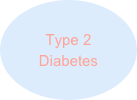
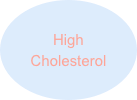
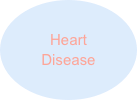

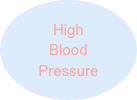
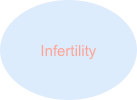
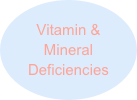
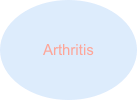
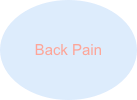
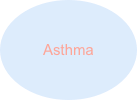
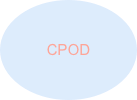
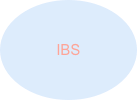
Pre-Op Liver Shrinking Diet
Excess weight can cause the liver to become fatty, enlarged and fragile. This can cause complications such as bleeding from the liver. If the liver is too large, It makes it difficult for the surgeon to see the stomach and this can lead to conversion to an open procedure or in some cases surgery is abandoned. Following a liver reduction plan gives the surgeon better accessibility to the stomach and improved visibility all of which reduce the risk of complications.
A liver reduction plan is adequate in protein but low in calories, fat, sugar and complex carbohydrates (bread, cereals, pasta, rice and potato). A reduction in sugar and carbohydrates decreases the amount of glycogen (a sugar) that is stored in the liver. Since each ounce of glycogen also stores 3–4 ounces of water the liver loses water and shrinks in size. Much of your weight loss is fluid loss rather than true weight loss and therefore you will notice an increase in urination, this is a good sign and shows that the liver reduction plan is working.
The length of time on the liver reduction plan can be anywhere from 1 week – 6 weeks. Speak with your bariatric team to ascertain how long to follow the plan.

request a quote
to request a quote or a call to discuss your surgical needs






to go to the NBSR website


“I enjoy attending the monthly support group sessions where I am helped by others who have experienced weight loss surgery..”






MBS (Manchester Bariatric Services)






